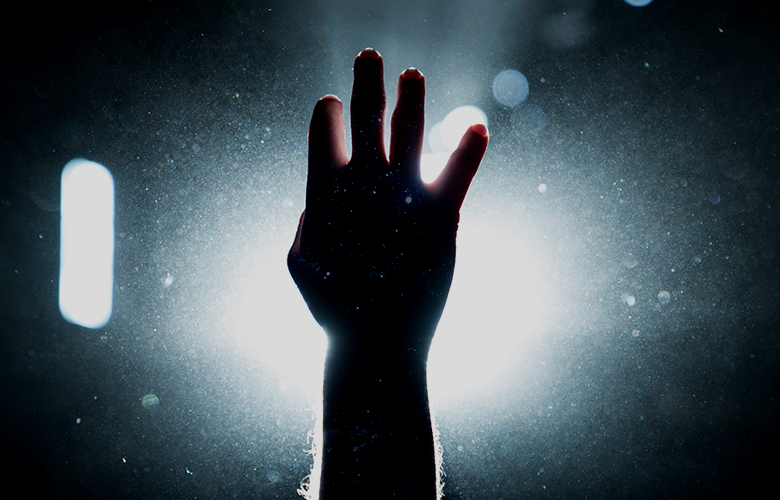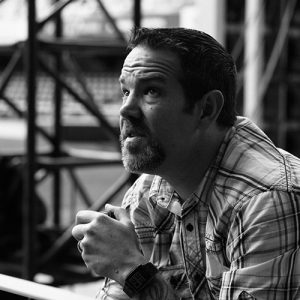
It is with the heaviest of hearts that I write the hardest article I have ever written. I would much rather write an opinion piece on my feelings about rainbow chases and load-in puppy play days. However, I feel it necessary to state my opinion about the state of the tragic affairs surrounding unnecessary violence in the entertainment arena.
More importantly, I feel the need to state my opinion on what we should and should not do in order to save human lives from our vulnerable lighting platform amongst the crowd. How can we use our light to battle against darkness?
Las Vegas has been my home for 17 years. Every single contact that I have in our wonderful industry has come into my life because of Sin City. Las Vegas is the entertainment capital of America, if not the world. There are more shows filled with more people from more countries on one street in Vegas than anywhere else that I know of. An evil person wishing to do harm to a crowd of innocent concertgoers has an overflowing buffet of shows and venues to choose from.
We’d all like to think our event is different, those kinds of things could never happen to us, but the truth is—it can happen. Tragedies can happen anywhere and they are happening with increasing frequency: Century 16 Movie Theater in Aurora, Colorado July 20, 2012; The Bataclan in Paris November 13, 2015; The Plaza Live in Orlando June 10, 2016; Reina Nightclub in Istanbul January 1, 2017; The Manchester Arena May 22, 2017; and now Las Vegas October 1, 2017. Across from the Mandalay Bay, at the Route 91 music festival, Stephen Paddock chose to open fire killing fifty-eight concertgoers and wounding hundreds.
As a concertgoer, lighting professional, father, husband, and as a human being, I can’t help but to ask, “What can I do?” “What can we all do?”
Three things that we SHOULD do in an emergency situation:
I have a button on my console that is simply labeled “Panic”. My panic button brings up all of the house lights that I have available, kills all chases and brings the stage wash to a fifty percent blue look. I believe that this is the correct thing to do for the audience and for the performers in an emergency situation. Bringing the house lights up allows people to be aware of their surroundings. Audience lighting illuminates available exits and helps avoid a stampede.
Simply put, when the audience is dark, they can’t see or hear four rows away from them. If someone in the audience opens fire, attendees can’t see. With house lights up, we are better able to spot a possible threat and choose to fight or flee. A violent act can be committed under the cover of dark just as easily as it can in the light.
House lights down also implies that whatever action is taking place might possibly be part of the show. When the house lights are down some people might be encouraged to stick around to see what is going to happen next. Much like last call at the Double Down Saloon, when house lights come up, it signifies that there is nothing more to see here and you should get out as soon as possible.
Valuable seconds can be utilized more efficiently by relying on the audience’s instinct to leave when house lights come up. There is no time to build a look for every emergency that could arise. We shouldn’t be taking the time to focus lights on individuals that may be causing violence or isolating the danger in the most flattering color correction. We need to hit the panic button, grab our radio and get away from the desk. We need to head towards the first available exit.
All venues are built differently and available exits can get confusing. Some arenas have exits all around the show floor and some only have one. I can think of a few older arenas equipped only with exits for the general audience that require running up the stairs towards the mezzanine.
Take time during the day to become familiar with the path that leads outside as fast as possible. You and anyone around you will need an escape plan in case of any emergency.
Violence, natural disaster, or fires all require you to know the fastest available exit. Without prior knowledge of your escape plan, you could easily end up running into a broom closet or chair storage only to be stuck there for an extended period. We need to know where the nearest possible safe zone may be to meet up with our party.
If you’re working a house gig you likely already know where your safe meeting zone is, but for touring personnel I would suggest the parked buses as a first option. The buses can supply familiarity for disoriented roadies, a place where we can lock a door if we need to and gather any supplies to assist others. We should take a head count, maintain radio communication with anyone outside the buses, and from a safe distance call Emergency Services and alert the authorities of the situation.
Three things that we SHOULD NOT do in an emergency situation:
I watched an interview from the evening of the Las Vegas shooting with a local stagehand outside the venue. He decided to use his interview to describe the scene and then blamed the shooting on Las Vegas being a sanctuary city. This helps no one. It may have helped make him feel better about his dislike for the current immigration policy based on misinformation, but no one in this situation was made any safer by his ignorant comment.
Passing blame in an emergency situation only leads to more irrational behavior. When tragedy strikes, the facts must be investigated, identified, and corrections put in place in a timely manner. There is no need to speak out with wild accusations until the facts have been presented.
2. Don’t make wild accusations and start conspiracy theories.
Emergency situations are confusing and information travels at light speed. Victims are coping with shock and horror and perhaps say things that they haven’t thought through. It is the job of law enforcement officials to take all that information and decide what is beneficial to share with the public and what information is not. As a community, we need to rely on the police and emergency professionals to do what they need to do.
We cannot and will not stop creating spectacles around the globe that bring people together. We must continue to shine the light of our freedom of expression through art in all its forms and deliver it to the masses to be admired. We will never allow the forces of darkness and hatred to take this from us. We will not let fear dictate our progress, our resolve, our desire to gather, or our shared celebration of all that we create together.
Chris Lose is a touring lighting director who would like to honor all first responders, law enforcement and emergency personnel for their tireless efforts to keep concertgoers safe.


Chris Lose is an international touring lighting director and programmer who has dedicated his life to solving problems through pragmatic decision making and calming techniques. He strives to invoke emotion through color, atmosphere and beauty. Chris’s most recent clients include Fleetwood Mac, Don Henley, Calvin Harris and Corporate Events around the globe.
Read Full Profile© 2021 TheatreArtLife. All rights reserved.

Thank you so much for reading, but you have now reached your free article limit for this month.
Our contributors are currently writing more articles for you to enjoy.
To keep reading, all you have to do is become a subscriber and then you can read unlimited articles anytime.
Your investment will help us continue to ignite connections across the globe in live entertainment and build this community for industry professionals.